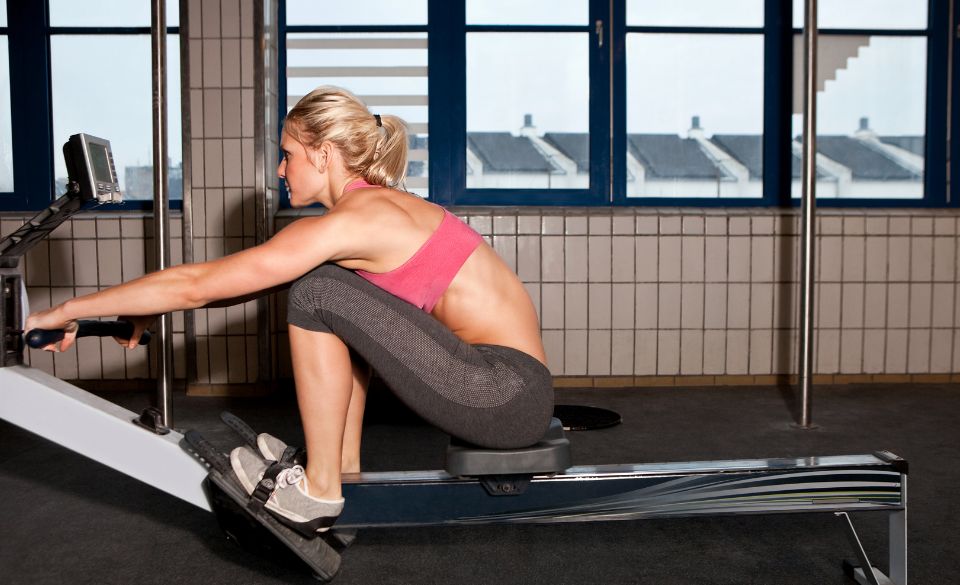
Can You Use A Rowing Machine While Pregnant
Page Contents
As an expecting mother, it’s only natural to wonder about the safety and suitability of various exercises during pregnancy. One popular question that often arises is whether it’s safe to use a rowing machine while pregnant. The good news is that in most cases, rowing can be a safe and effective exercise option for expectant mothers. However, it’s crucial to consider certain factors and consult with your healthcare provider before incorporating rowing into your prenatal fitness routine.
The Benefits of Rowing During Pregnancy
Rowing is a low-impact, full-body workout that offers numerous benefits for pregnant women. It provides cardiovascular conditioning, strengthens major muscle groups, and improves endurance. Rowing also promotes proper posture, which is especially important as your body undergoes changes during pregnancy. By engaging the arms, legs, back, and core muscles, rowing helps maintain muscle tone and strength throughout your pregnancy.
Furthermore, rowing is a non-weight-bearing exercise, meaning it puts minimal stress on your joints. This makes it a suitable option for pregnant women who may experience joint discomfort or swelling. The smooth, fluid motion of rowing can be gentle on your body, allowing you to stay active and maintain fitness without placing excessive strain on your ligaments and joints.
Factors to Consider Before Rowing
While rowing can generally be safe during pregnancy, it’s crucial to consider certain factors before starting or continuing this exercise. First and foremost, it’s essential to consult with your healthcare provider. They can evaluate your specific situation, taking into account any pre-existing conditions or complications that may affect your exercise routine. Your doctor can provide personalized advice and guidelines tailored to your needs.
Additionally, listen to your body and make adjustments as needed. Pregnancy affects each woman differently, so pay attention to any discomfort, pain, or unusual symptoms while rowing. Modify the intensity, duration, and resistance level to suit your comfort level and energy levels. Remember, the goal is to maintain a moderate level of exercise without pushing yourself to exhaustion.
Safety Precautions for Rowing During Pregnancy
To ensure your safety and the well-being of your baby while rowing, it’s important to follow some safety precautions. First and foremost, stay hydrated throughout your workout session by drinking plenty of water. Avoid overheating by exercising in a well-ventilated area and wearing breathable clothing. Be mindful of your posture during rowing to maintain proper alignment and prevent strain on your back.
Avoid excessive twisting or leaning forward during the rowing motion, as this can strain your abdominal muscles. Instead, focus on maintaining a neutral spine position and engaging your core muscles for stability. If you experience any pain, dizziness, shortness of breath, or vaginal bleeding, stop exercising immediately and consult your healthcare provider.
Studies Supporting the Use of Rowing Machines During Pregnancy
Several studies have examined the safety and efficacy of rowing during pregnancy, providing further evidence to support its inclusion in prenatal exercise routines. One study published in the Journal of Science and Medicine in Sport found that pregnant women who engaged in rowing exercises experienced improved cardiovascular fitness, reduced pregnancy-related discomfort, and better weight management compared to those who did not exercise.
Another study published in the British Journal of Sports Medicine investigated the effects of rowing on pregnant women’s blood pressure and found that regular rowing workouts led to significant reductions in blood pressure levels. This is particularly important since high blood pressure during pregnancy can increase the risk of complications such as preeclampsia.
Furthermore, research published in the American Journal of Obstetrics and Gynecology explored the impact of exercise during pregnancy on the length of labor and found that women who participated in moderate-intensity exercise, including rowing, experienced shorter labor durations compared to sedentary individuals. This suggests that rowing and other forms of exercise can contribute to a smoother labor and delivery process.
It’s worth noting that while these studies demonstrate the potential benefits of rowing during pregnancy, every woman’s experience is unique. Therefore, it’s important to consult with your healthcare provider and consider your individual circumstances before starting or continuing a rowing routine.
Alternative Exercises for Pregnant Women
While rowing can be a fantastic exercise option for many pregnant women, it’s essential to have alternatives in mind in case rowing doesn’t feel comfortable or is contraindicated for your specific situation. Here are a few alternative exercises that are generally safe for pregnant women:
1. Walking: Walking is a low-impact exercise that can be easily modified to match your fitness level. It promotes cardiovascular health, strengthens leg muscles, and helps maintain overall fitness.
2. Prenatal yoga: Yoga is a gentle form of exercise that focuses on stretching, flexibility, and relaxation. Prenatal yoga classes specifically cater to the needs of pregnant women, providing modifications for various stages of pregnancy.
3. Swimming: Swimming and water aerobics are excellent choices for pregnant women as they provide resistance without putting strain on the joints. The buoyancy of water helps alleviate pressure on the body while offering a full-body workout.
4. Stationary cycling: Using a stationary bike is a low-impact way to improve cardiovascular fitness and strengthen leg muscles. Adjust the seat height and resistance level to ensure comfort and safety.
Remember, the goal is to engage in regular, moderate-intensity exercise that feels comfortable and enjoyable for you. Experiment with different activities and find what works best for your body and preferences.
Final Words
Incorporating a rowing machine into your prenatal fitness routine can be a safe and effective way to stay active during pregnancy. However, it’s crucial to consult with your healthcare provider to ensure it’s appropriate for your specific situation. Consider the benefits of rowing, such as improved cardiovascular fitness and muscle strength, as well as the precautions and alternative exercises mentioned above.
Remember, each pregnancy is unique, and what works for one person may not work for another. Always listen to your body, make necessary adjustments, and prioritize your comfort and safety. By staying active and engaging in appropriate exercises, you can promote your overall well-being and potentially experience a smoother pregnancy and labor.



